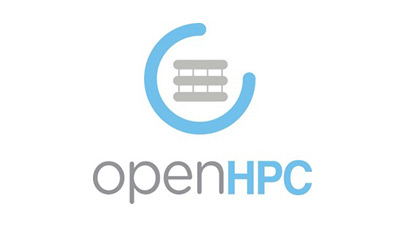At SC15 last year the announcement of OpenHPC – the nascent effort to develop a standardized HPC stack to ease HPC deployment – drew a mix of enthusiasm and wariness; the latter in part because of Intel’s prominence in the group. There was general agreement that creating an open source, plug-and-play HPC stack was a good idea but concern that the initiative might not be sufficiently open. A wait and see attitude prevailed.
Heading into SC16 in a few weeks, OpenHPC expects to tangibly demonstrate it has followed through on its commitment to move quickly and remain firmly open. In June, the nascent effort became a full-fledged Linux Foundation Open Collaborative Project. It released version 1.1.1 with more than 60 packages (tools and libraries, as well as provisioning, and a job scheduler) in time for ISC16.
Since then its formal organization infrastructure has solidified. The initial decision to include of a few commercial proprietary tools was reversed; there are none today and that’s now the policy. Membership has fluctuated but there are around 30 today. IBM, though invited, declined. A process for submitting new features has been established. Sixty-eight percent of the initial components have been updated. A handful of organizations – Microway and Red Oak Consulting, for example – have implemented the stack.
“I would like to move faster but am told we are actually moving very quickly compared to most similar efforts,” says Figen Ulgen, Intel GM, High Performance Computing Software & Cloud, and a member of the OpenHPC board of directors. “It’s only been around four months since becoming a Linux Foundation project.” The notion, of course, is that establishing a robust standard HPC stack will expand HPC use beyond traditional users; moreover care is being taken to embrace a variety of data analytics and cloud enablement elements further broadening its appeal and applicability.
 SC16 should mark an important one-year milestone. The expectation is OpenHPC will have another release at SC, likely 1.2.0, but that’s not definite said Ulgen. Most of the early effort has centered on developing a clear process for testing and integrating components and for submission of new features. Intel has donated hardware for the effort, which is housed at TACC (Texas Advanced Computing Center, at University of Texas, Austin).
SC16 should mark an important one-year milestone. The expectation is OpenHPC will have another release at SC, likely 1.2.0, but that’s not definite said Ulgen. Most of the early effort has centered on developing a clear process for testing and integrating components and for submission of new features. Intel has donated hardware for the effort, which is housed at TACC (Texas Advanced Computing Center, at University of Texas, Austin).
“We need to figure out as a community how are we going to maintain a software stack that’s out there, that’s already compiled, when everybody wants to contribute and change components. OpenStack, I think, has suffered from that issue. We have representatives of OpenStack in our community,” says Ulgen, who before joining Intel in 2014 was senior director, business intelligence & analytics for Microsoft.
Currently, she says there are “thousands of downloads of individual components per month” and “hundreds of downloads for the entire stack every month.” That seems a good sign, though hard to gauge what’s being done with those downloads. The initial software stack includes over 60 packages and the complete list is available on the project GitHub page.
Broadly, OpenHPC members are working to:
- Create a stable environment for testing and validation: The community will benefit from a shared, continuous integration environment, which will feature a build environment and source control; bug tracking; user and developer forums; collaboration tools; and a validation environment.
- Reduce Costs: By providing an open source framework for HPC environments, the overall expense of implementing and operating HPC installations will be reduced.
- Provide a robust and diverse open source software stack: OpenHPC members will work together on the stability of the software stack, allowing for ongoing testing and validation across a diverse range of use cases.
- Develop a flexible framework for configuration: The OpenHPC stack will provide a group of stable and compatible software components that are continually tested for optimal performance. Developers and end users will be able to use any or all of these components depending on their performance needs, and may substitute their own preferred components to fit their own use cases.
It all sounds good. The decision not to include any proprietary versions of software in the publically available OpenHPC was an important step. The prominence of Intel worried many that this was simply Intel’s answer to IBM’s OpenPOWER foundation although the two efforts are really quite different. Indeed, everyone seems to be enamored of the term “Open” these days.
At last year’s SC, IBM executives told HPCwire they were not inherently opposed to the OpenHPC and Ulgen says there have been multiple conversations with Big Blue which “ultimately chose not to join.” Other Intel and x86 competitors have joined. Notably ARM. OpenHPC is intended to be a modular build allowing users to pick and choose, and that includes using proprietary software where compatible. OpenHPC currently provides builds that are compatible and tested against CentOS as well as SUSE Linux Enterprise Server.
Member organizations span industry, academia, and government. Here is a sampling: Altair (an open source version of PBS Pro was released at ISC 16), Atos, Dell, Cray, Riken, Barcelona Supercomputing Center, Center for Research in Extreme Scale Technologies (CREST) at Indiana University, Sandia National Labs; Pittsburgh Supercomputing Center, and Lawrence Livermore National Labs.
Intel is clearly a driver and Karl Schulz, a principal engineer in Intel’s High Performance Computing Group, is the project leader. He spent roughly a decade in various capacities at TACC and the Institute of Computational Engineering and Sciences at the University of Texas, Austin, before joining Intel in 2014. Jeff ErnstFriedman of the Linux Foundation is the project manager.
Current members of the OpenHPC Technical Steering Committee include:
- Reese Baird, Intel (Maintainer)
- Pavan Balaji, Argonne National Laboratory (Maintainer)
- David Brayford, LRZ (Maintainer)
- Todd Gamblin, Lawrence Livermore National Labs (Maintainer)
- Craig Gardner, SUSE (Maintainer)
- Yiannis Georgiou, ATOS (Maintainer)
- Balazs Gerofi, RIKEN (Component Development Representative)
- Jennifer Green, Los Alamos National Laboratory (Maintainer)
- Eric Van Hensbergen, ARM (Maintainer, Testing Coordinator)
- Douglas Jacobsen, NERSC (End-User/Site Representative)
- Chulho Kim, Lenovo (Maintainer)
- Greg Kurtzer, Lawrence Berkeley National Labs (Component Development Representative)
- Thomas Moschny, ParTec (Maintainer)
- Karl W. Schulz, Intel (Project Lead, Testing Coordinator)
- Derek Simmel, Pittsburgh Supercomputing Center (End-User/Site Representative)
- Thomas Sterling, Indiana University (Component Development Representative)
- Craig Stewart, Indiana University (End-User/Site Representative)
- Scott Suchyta, Altair (Maintainer)
- Nirmala Sundararajan, Dell (Maintainer)
Last year, OpenHPC created a ripple if not a hearty buzz at SC. It will be interesting to hear the attention level garnered this year. OpenHPC will not have its own booth but will have a presence in many member booths. A few will be demonstrating OpenHPC components, says Ulgen, although she did not specify which ones.
There was a well-attended BOF at ISC and another BOF is planned for SC16, Wednesday, and will be led by Schulz and David Brayford.
Related links:
OpenHPC home: http://www.openhpc.community/
OpenHPC Governance: https://github.com/openhpc/ohpc/wiki/Governance-Overview
OpenHPC Presentations: https://github.com/openhpc/ohpc/wiki/Presentations
OpenHPC Submission Process: https://github.com/openhpc/submissions





























































